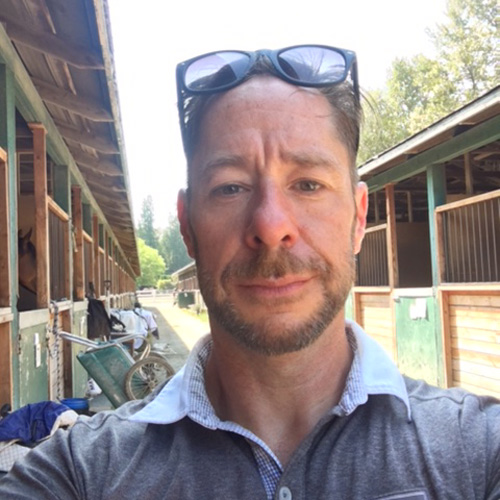
Jason's Story
Jason's major turning point from recovery was when he was hospitalized for depression and psychosis. Jason shares what helped him the most to get better.

Jason's major turning point from recovery was when he was hospitalized for depression and psychosis. Jason shares what helped him the most to get better.
"Accepting that I had a mental illness and using my support network was the turning point in my recovery."
About Jason:

I am interested in helping other men connect with the support they need to achieve better mental health and encourage their recovery. I have a mindset for personal growth. I am currently an athlete working with a coach to compete in the equestrian discipline of Eventing and Show Jumping. I also train and compete locally in distance running and am working to achieve my long-term goals in sport.
My major turning point towards recovery was when I was hospitalized from my depression and psychosis. I was losing everything around me, my family and personal relationships were broken. In the hospital, I never thought I would be able to function normally considering the state of my mental health. It was life altering and I survived. I started my slow road to recovery and started seeing a therapist.
I would advise them to take things slowly and to know that it is OK to feel like you need help. You get a lot of power from taking the first step. See a therapist and start to do physical activity as you can. If it’s just a walk down the block to start, that is OK. Medication also helped me a lot and I tried it off and on for several years. It took time to find ones that help.
Recovery also led me to repairing my broken relationships and getting my family back. I also have a good quality of life and am very grateful that I put in the work to get here. Read as much as you can about your mental illness and how it affects you. Look into peer supports in person or online and try to find time to be around people.
Practice gratitude and take time for meditation. Don’t give up, this time of your life is just a period of it. Things will change in time. It’s OK if you feel scared right now, strength comes from being vulnerable and not always knowing the right answers.
– Jason, equestrian athlete, Vancouver, British Columbia, Canada
Move for something that matters! Between June 1–15, walk, run, bike, or hike for men's mental health.
Let's Step Up for our dads, brothers, partners, sons, uncles, friends, co-workers — and ourselves.